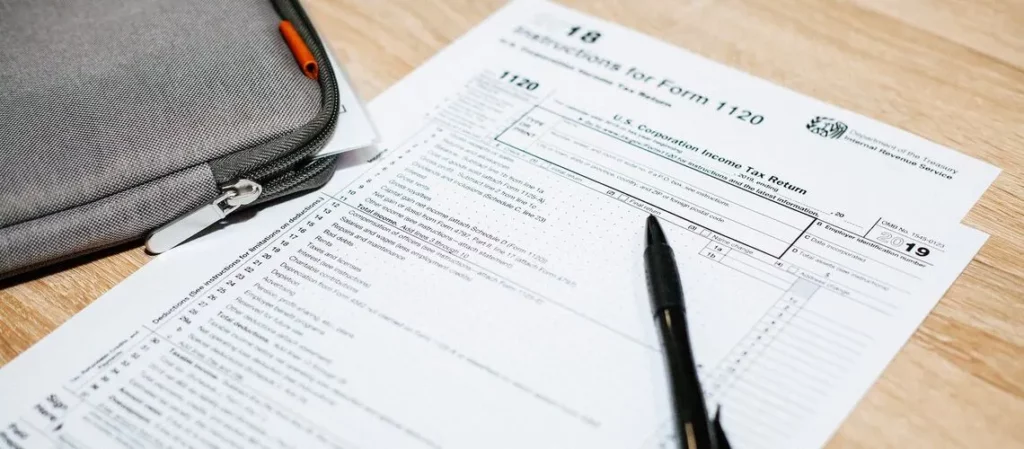Expert Property Valuation
Welcome to Portello Valuations
Our Key Services
Residential Property Valuations
Understand the true worth of your home or investment property with our detailed assessments.
Commercial Property Valuations
Maximise your ROI with precise evaluations of your commercial assets.
Land Valuations
Get a clear picture of your land's potential with our rigorous assessments.
Rental Valuations
Secure the best rental income by understanding the exact value of your property in today's market.
Taxation Valuation
Ensure compliance and fairness in taxation with our meticulous property evaluations.
Insurance Valuations
Safeguard your investments with the right coverage based on our expert valuations.
City-Wise Specialties
Brisbane
- Expertise in riverside properties
- Proficiency in suburban residential assessments
- Specialized knowledge in the evolving commercial hubs
Melbourne
- Mastery in CBD property evaluations
- Specialty in cultural precinct properties
- Expertise in beachside residential valuations
Sydney
- Premier valuations in harbourfront properties
- Excellence in high-rise residential assessments
- Proficiency in evaluating historic and heritage properties
Get In Touch
Valuation Updates

Commercial Property Valuation in Sydney: Key Insights
In Sydney’s competitive real estate market, accurate commercial property valuation is crucial for property owners and investors. Sydney Property Valuation Metro, a Sydney-based property valuation business, brings you key insights to help you navigate this complex process. Whether you’re looking to buy, sell, or lease, understanding the primary factors affecting commercial property valuation will help you make smarter decisions.
Factors Impacting Commercial Property Valuation
- Location: Properties near major business districts, transportation networks, and amenities often attract higher valuations. This is due to increased accessibility and proximity to essential services.
- Building Condition: Well-maintained, upgraded properties typically receive higher valuation estimates. Recent renovations, structural integrity, and modern facilities significantly impact property value.
- Lease Terms: Long-term leases with reputable tenants provide stable income streams, positively impacting valuation. Favorable lease terms, like stable rental increases, offer predictability for prospective buyers or investors.
- Market Demand: Strong demand for office or retail space can lead to higher property values in certain areas. Understanding current trends is essential to anticipate future demand and leverage emerging opportunities.
- Zoning Rules: Changes in local zoning laws or future development plans can open up new opportunities or affect property values. Stay updated on zoning regulations that can impact the potential uses of your property.
Maximizing Your Property’s Value
- Perform regular maintenance and strategic upgrades to improve the building’s appearance and functionality. This includes repainting, energy-efficient updates, and enhancing curb appeal.
- Conduct market research to align your property with current and future market demand. Evaluate the needs of businesses or potential tenants to provide features that attract higher rents or lease terms.
- Secure favorable lease agreements with high-quality tenants for long-term, stable revenue. Tenants who operate established businesses and offer steady rental payments increase the property’s attractiveness to investors.
- Work with professional valuers like Sydney Property Valuation Metro for an accurate commercial property valuation and actionable growth strategies. Professional valuers provide a comprehensive analysis of your property and help identify areas of improvement.
Conclusion
Commercial property valuation requires a strategic approach and expert knowledge of Sydney’s dynamic real estate market. With Sydney Property Valuation Metro, you’ll receive comprehensive insights into maximizing your property’s value. Learn more about commercial property valuation Sydney to unlock the potential of your commercial asset.

Valuations: The Cornerstone of Mortgage Security and Borrowing Capacity
When you’re in the market for a new home and considering a mortgage, understanding the role of property valuations is crucial. A valuation is not just a formality; it’s a fundamental part of the mortgage process that affects how much you can borrow, the interest rates you’re offered, and the overall terms of your home loan. This article explores why valuations are indispensable to the mortgage process, how lenders use them, and their impact on your borrowing capacity.
The Significance of Mortgage Valuation
A mortgage valuation, also known as a home loan valuation, is an assessment carried out by lenders or mortgage brokers to determine the value of a property you intend to buy. This valuation is crucial for several reasons:
- Risk Assessment: Lenders use valuations to gauge the risk associated with lending money against a property. A valuation helps ensure that the property is worth the loan amount should the lender need to sell it in the event of a default.
- Loan-to-Value Ratio: The outcome of a valuation affects the Loan-to-Value Ratio (LVR), which is the amount of your loan compared to the value of your property. A lower LVR usually results in more favourable loan conditions and interest rates.
- Borrowing Limit: Ultimately, the valuation determines how much you can borrow. If a property is valued lower than the purchase price, you might need to find additional funds to cover the difference.
How Lenders Use Valuations to Determine Borrowing Limits
Lenders use the valuation of a property to make informed decisions on how much they are willing to lend. Here’s a step-by-step look at this process:
- Appointment of a Valuer: Once you apply for a mortgage, the lender will commission a valuer (often an independent third party) to assess the property’s value.
- Physical Inspection and Comparison: The valuer conducts a physical inspection of the property and compares it to similar properties in the area to establish its market value.
- Assessment of Risk Factors: The valuation report also considers risk factors such as property location, condition, and market trends, which could affect its future value.
- Determination of Borrowing Limits: Based on the valuation, lenders calculate the LVR and decide the maximum amount they are willing to lend.
The Role of Mortgage Brokers in the Valuation Process
Mortgage brokers play a vital role in the valuation process, especially for borrowers navigating the complexities of securing a home loan. Here are some ways mortgage brokers can assist:
- Pre-valuation Advice: Mortgage brokers North Brisbane can provide valuable advice on how to potentially increase your property’s valuation, including making minor improvements or highlighting unique features of your property.
- Selection of Lenders: Brokers can help select lenders who are more likely to offer favourable valuations and loan terms based on their extensive knowledge of the market.
- Handling the Process: They manage the communication between you and the lender, ensuring that the valuation is completed efficiently and within the required timelines.
Understanding Valuations in the Mortgage Process
A thorough understanding of how valuations work and their impact on the mortgage process can empower borrowers to make informed decisions. Here are key points to remember:
- Valuations are a critical assessment tool for lenders, influencing loan terms and borrowing limits.
- The valuation process includes physical inspections, comparison with similar properties, and an assessment of any risks associated with the property.
- Mortgage brokers can be invaluable in guiding borrowers through the valuation process, advising on how to achieve a favourable outcome.
In summary, whether you’re working directly with a lender or through a mortgage broker, understanding the importance of property valuations and how they influence the mortgage process is essential. By recognising this, you can better prepare yourself for the steps involved in securing a home loan, potentially leading to more favourable loan terms and a successful property purchase.

The Homeowner’s Guide to Residential Property Valuations
When it comes to your most significant investment, your home, understanding its true value is crucial. Whether you are planning to sell, refinance, or just want to stay informed about the ever-changing housing market, a residential property valuation is an essential step. In this comprehensive guide, we will delve into the world of property valuations in the Australian housing market.
Why Property Valuations Matter
The Significance of Property Valuations
Property valuations are not just numbers on paper; they are a reflection of the financial health of your most valuable asset. Knowing the current value of your residential property is vital for several reasons:
- Selling Your Home: When putting your house on the market, you need an accurate valuation to set a competitive and realistic selling price. Overpricing may deter potential buyers, while underpricing could lead to financial losses.
- Refinancing: If you’re considering refinancing your mortgage, lenders typically require a property valuation to determine the loan amount they can offer you. A higher valuation can result in better lending terms.
- Property Taxes: Local governments use property valuations to calculate property taxes. Understanding your property’s value ensures you are not overcharged.
- Insurance: Your home insurance premiums are often based on the property’s valuation. An accurate valuation ensures you have adequate coverage.
- Investment Decisions: Property valuations play a crucial role in making informed decisions about real estate investments.
How Property Valuations Work
The Valuation Process
Property valuations are typically carried out by licensed valuers who follow a standardized process:
- Inspection: Valuers visit the property to assess its condition, size, location, and other relevant factors.
- Comparative Market Analysis: Valuers compare your property to similar ones that have recently sold in the area. This helps establish a baseline value.
- Consideration of Unique Features: Special features of your property, such as renovations, unique architecture, or a large backyard, can affect its value.
- Market Trends: Valuers take into account the current state of the housing market, including supply and demand factors, interest rates, and economic conditions.
- Final Valuation: After considering all these factors, the valuer arrives at a final property valuation.
Factors Affecting Property Valuations
What Influences Your Property’s Value?
Several factors can impact the valuation of your residential property:
- Location: The old adage, “Location, location, location,” holds true. Properties in desirable neighbourhoods tend to have higher values.
- Property Size and Condition: Larger properties in good condition generally have higher valuations.
- Recent Renovations: Upgrades and renovations can significantly increase your property’s value.
- Local Amenities: Proximity to schools, parks, shopping centres, and public transport can affect property values.
- Economic Conditions: The overall state of the economy and interest rates can influence property valuations.
Staying Informed About the Housing Market
The Role of Market Trends
The Australian housing market is dynamic and can experience fluctuations over time. To stay informed about market trends:
- Regularly Check Property Valuations: Periodically obtaining property valuations can help you track changes in your property’s worth.
- Follow Real Estate News: Keep an eye on housing market news, as it often provides insights into where the market is heading.
- Consult Professionals: Real estate agents and valuers can offer valuable advice on the current state of the market.
Navigating Your Property’s Financial Landscape
Understanding property valuations in the Australian housing market is essential for homeowners. Whether you’re selling, refinancing, or just want to make informed decisions about your property, knowing its true value is key. By considering the factors that influence valuations and staying informed about market trends, you can make the most of your residential property investment. Property valuations are not just numbers; they are the key to unlocking the potential of your home in the ever-changing Australian housing market.

How Renovations Impact House Value: A Comprehensive Guide to Maximising Your Investment
When it comes to real estate, one of the most effective ways to enhance your property’s worth is through targeted renovations. In this guide, we’ll explore how various types of renovations can significantly impact your home’s valuation, for better or for worse.
The Link Between Renovation and Property Valuation
The concept of renovation value is closely tied to the overall worth of your home. Renovations can drastically improve the aesthetic appeal, functionality, and durability of your property, all of which contribute to its market value.
Understanding ROI in Home Renovations
The return on investment (ROI) from renovations is crucial to consider. Not all home improvements provide a high ROI, so it’s essential to weigh the costs and potential benefits.
Factors Affecting Renovation Value
- Quality of materials and workmanship
- Market demand for specific features
- Local real estate trends
- The home’s current condition
Types of Renovations That Add Value
Understanding what types of renovations actually add value to your home can help you make informed decisions.
Kitchen Upgrades
An upgraded kitchen is often a key selling point. High-quality materials and modern appliances can significantly improve the renovation value.
Bathroom Renovations
Much like the kitchen, a well-designed and modern bathroom can add considerable value to a property.
Energy-Efficient Modifications
Adding energy-efficient windows, insulation, and solar panels can not only reduce utility costs but also make the property more attractive to environmentally conscious buyers.
Renovations That Could Decrease Home Value
While many home improvements can add value, some could inadvertently decrease the worth of your property.
Over-personalised Decor
Excessively personalised renovations can deter potential buyers. The more specific the decor, the narrower your market becomes.
Poor Quality Work
Subpar materials and workmanship can negatively impact the renovation value and may even require costly fixes in the future.
Ignoring Essential Repairs
Focusing solely on aesthetic upgrades while ignoring essential repairs like roofing or plumbing can also reduce your home’s value.
By understanding the various factors and types of renovations that can affect your home’s worth, you can better plan your next renovation project. Be mindful of both adding value and the potential risks involved to ensure you make the most out of your investment.

Commercial vs Residential: Valuation Differences
Property valuation is a critical aspect of the real estate industry. It determines the worth of a property in the current market, influencing both buyers and sellers in their decision-making processes. While the overarching principle of property valuation remains consistent, the methods and nuances differ significantly between commercial and residential properties.
Commercial Property Valuation
Commercial properties, often referred to as income-producing properties, are primarily used for business purposes. Their valuation is complex and takes into account several factors.
Income Potential
One of the primary factors in commercial property valuation is the potential income it can generate. This is often determined by the rental income from tenants, minus any operational costs.
Location and Usability
The location of a commercial property and its suitability for specific businesses play a crucial role in its valuation. A property in a bustling business district will likely have a higher value than one in a less populated area.
Market Comparables
Similar to residential properties, commercial properties are also compared to recent sales of similar properties in the area.
Residential Property Valuation
Residential properties are those primarily used for living purposes. Their valuation is often more straightforward than commercial properties.
Comparative Market Analysis
This method involves comparing the property in question to recently sold properties with similar characteristics in the same area.
Condition and Amenities
The state of the property, its age, and any additional amenities can significantly influence a residential property’s value.
Location and Neighbourhood
The location of a residential property, its proximity to essential amenities, and the overall feel of the neighbourhood are vital factors in determining its value.
Key Differences in Valuation
- Use and Purpose: Commercial properties are valued for their business potential, while residential properties are valued for their liveability.
- Valuation Methods: Commercial properties often rely on income potential, while residential properties lean more on comparables and amenities.
- Complexity: Commercial valuations are generally more complex due to factors like tenant contracts, operational costs, and potential business revenue.
Nuances in Property Valuation
Every property, whether commercial or residential, has its unique nuances that can influence its value. Factors such as historical significance, architectural uniqueness, or even future development plans for the area can play a role in the valuation process.
In conclusion, while property valuation serves as a foundation for both commercial and residential real estate transactions, the methods and factors considered vary widely. Understanding these differences is crucial for anyone involved in the real estate industry.

Understanding the Valuation Report: A Guide
Property valuations are crucial for homeowners, whether you’re buying, selling, or refinancing in Australia. A valuation report serves as a foundational document that provides an estimate of a property’s value based on various factors. But for many, deciphering the jargon and understanding the nuances can be daunting. Let’s dive deep into the valuation report and learn how to navigate its intricacies.
What is a Valuation Report?
A valuation report, in essence, is an assessment made by certified professionals regarding the estimated market value of a property. Typically, it’s used by financial institutions, real estate agents, and homeowners to ascertain a property’s worth in the current market.
Key Components of a Property Valuation Report
1. Executive Summary
This section offers a snapshot of the property in question, presenting its address, type (e.g., residential, commercial), and the estimated value. The executive summary serves as a quick reference for anyone skimming the report.
2. Methodology
It outlines the methods used by the valuer to determine the property’s worth. Common approaches in Australia include the Direct Comparison Method, the Summation Approach, and the Capitalization of Net Income method.
3. Property Details
Here, you’ll find comprehensive information about the property: its size, age, layout, number of rooms, and any unique features that might affect its value.
4. Market Analysis
The market analysis offers insights into current real estate trends in Australia or specific regions, comparing similar properties, their selling prices, and how long they remained on the market.
5. Limitations and Disclaimers
In this section, valuers address any factors that might affect the accuracy of the valuation, such as unforeseen property damages or changing market conditions.
Decoding the Jargon
Understanding property valuation reports often means navigating through industry-specific terms. Here’s a quick glossary:
- Comparable Sales: References to similar properties that have sold recently, providing a basis for the valuation.
- Yield: Represents the return on investment for a property, often relevant for rental properties.
- Sworn Valuation: An official report that’s provided under oath, commonly used in legal proceedings.
- Zoning: Information about how the land can be used (e.g., residential, commercial, industrial).
- Encumbrance: Any claims or liens against the property that might affect its value or marketability.
Why is the Valuation Report Important in Australia?
In Australia’s dynamic property market, a valuation report plays a pivotal role. Here’s why:
1. Securing a Mortgage
Banks and financial institutions rely on valuation reports to determine how much they’re willing to lend for a property purchase or refinance.
2. Selling or Buying a Home
For sellers, a valuation report helps set a realistic asking price. Buyers, on the other hand, can use it to gauge if a property is fairly priced.
3. Tax Purposes
Understanding the market value of a property is crucial for calculating taxes, especially capital gains tax.
Tips for Interpreting a Valuation Report
– Always consider the date of the report. Property markets change, and a valuation can become outdated.
– Look at the methodology used and ensure it’s suitable for the type of property and its location.
– Compare the property’s features against those of the referenced comparable sales to ensure accuracy.
The valuation report is a cornerstone document for homeowners in Australia, affecting decisions on buying, selling, and financing. With this guide, navigating and understanding its details becomes a straightforward task. Armed with knowledge, you can confidently make informed decisions about your property in Australia’s bustling real estate market.

The Relationship between Property Valuation and Taxes in Australia
Understanding Property Valuation
Before delving deep into the relationship between property valuation and taxes, it’s essential to understand what property valuation truly means. Property valuation, often termed as “property appraisal,” is the process of determining a property’s current market value. Professionals who carry out this task, called property valuers or appraisers, consider various factors including the property’s location, structural condition, recent sales of similar properties, and potential future development.
How Taxes in Australia Relate to Property Value
Property valuation plays a crucial role in determining various taxes in Australia. Unlike some countries, where taxes might be standardized, Australian taxes are often linked to the value of an individual’s property.
1. Council Rates
One of the most direct correlations between property valuation and taxes in Australia lies in the council rates. These rates are charged by local governments to fund local services like rubbish collection, infrastructure maintenance, and public amenities. The higher a property’s valuation, the higher the council rates tend to be, as these rates are typically a percentage of the property’s value.
2. Stamp Duty
When buying a new property, Australians are required to pay a tax known as “stamp duty.” The amount of this tax depends on the property’s value. Essentially, as the property valuation increases, the amount of stamp duty paid rises. Each state and territory in Australia has its own scale and exemptions for stamp duty, making the relationship between property valuation and this tax complex and dynamic.
3. Land Tax
Land tax is another crucial tax in Australia that’s directly influenced by property valuation. While not all property owners are liable for this tax, those with properties above a certain value will find themselves paying land tax annually. As with stamp duty, rates and thresholds differ across states and territories, making a thorough understanding of your local regulations crucial.
Factors Influencing Property Valuation and Taxes
Several factors can influence a property’s valuation in Australia, and consequently, its associated taxes.
- Location: Properties located in prime locations or near essential amenities tend to have higher valuations.
- Property Size and Condition: Larger properties or those in better condition often command higher market values.
- Market Trends: If there’s a demand for properties in a particular area, it can push up valuations.
- Development Potential: A property’s value can surge if it holds potential for future development or rezoning.
Implications for Property Owners and Investors
Given the relationship between property valuation and taxes in Australia, both property owners and investors need to be astute.
Strategic Buying
Understanding the potential future value of a property can guide investors and homeowners in making strategic buying decisions. By considering future property valuation, you can estimate potential taxes and ensure they’re factored into your financial planning.
Regular Revaluation
Considering that property valuations can influence your tax obligations significantly, regular revaluations are recommended. By keeping abreast of your property’s current market value, you can anticipate and plan for any shifts in your tax liabilities.
Final Thoughts
The intricate relationship between property valuation and taxes in Australia underscores the importance of staying informed and updated. Whether you’re a homeowner, investor, or someone contemplating joining the property market, understanding this relationship can offer both financial clarity and strategic advantages.

Comparative Market Analysis in Valuation: Exploring the Method of Comparing Similar Properties in the Market
Understanding Comparative Market Analysis
Comparative Market Analysis (CMA) is a tool used predominantly in the real estate industry. It facilitates property valuation by comparing it to similar properties that have recently been sold or are currently on the market. By gauging the price at which comparable properties are being sold, professionals can estimate a probable price for a given property. This method is not only practical but also sheds light on current market trends.
Why Opt for Comparative Market Analysis?
There are several methods to value a property, but the Comparative Market Analysis stands out for a variety of reasons:
Relevance to Current Market Trends
Since a CMA evaluates recent sales, it mirrors the current market’s conditions and sentiments.
Flexibility and Precision
The CMA can be adapted to factor in the unique features and conditions of a particular property, ensuring a more accurate valuation.
Empowers Buyers and Sellers
A well-executed CMA provides buyers and sellers with a realistic view of a property’s worth in the existing market, promoting informed decision-making.
Key Components of a Reliable Comparative Market Analysis
A detailed and accurate CMA comprises the following essential elements:
- Selected Comparables: The chosen properties for comparison should ideally be similar in size, condition, and location.
- Recent Sale Prices: Focus should be on properties that have been sold in the past 3-6 months.
- Current Listings: Including properties currently on the market provides insight into existing competition and potential market trajectory.
- Adjustments: Modifications made for differences between the subject property and comparables, such as an extra bedroom or a swimming pool.
- Detailed Reports: A well-compiled CMA should offer insights into local market trends, days on the market, and price reductions.
Executing an Effective Property Comparison
Property comparison is a nuanced process and requires a strategic approach:
Identifying Similar Properties
When searching for comparable properties, it’s vital to prioritize properties in close proximity, boasting similar attributes such as age, size, and design.
Considering Temporal Relevance
Properties that have been sold more recently are more indicative of the current market situation. Thus, giving weight to more recent sales over older ones is prudent.
Adjusting for Differences
No two properties are identical. Adjustments need to be made for features like renovated interiors, landscaping enhancements, or other added amenities.
Challenges and Pitfalls to Avoid
While the Comparative Market Analysis offers numerous benefits, there are potential pitfalls:
Over-reliance on Automated Tools
While digital platforms and tools provide ease, relying solely on them can lead to misjudgements. Personal insight and expertise cannot be overlooked.
Not Accounting for Micro-Trends
Large-scale market trends are critical, but so are local or micro-trends in a particular neighbourhood or street.
Selection Bias in Comparable Properties
Cherry-picking properties that support a desired valuation rather than giving a holistic view can lead to inaccurate valuations.
In the realm of property valuation, Comparative Market Analysis stands as a formidable tool. By understanding its intricacies and potential challenges, professionals can harness its power to provide accurate and actionable property valuations. Whether you’re a buyer, seller, or real estate professional, leveraging this method effectively can significantly enhance your real estate journey.




